Three Things to Know Before Agreeing to a Mortgage
Because moving and buying a home can be time-consuming and stressful, it can be tempting to rush into a mortgage to get the process over with as quickly as possible. However, a mortgage is an important commitment, and there are a couple key concepts you should understand before signing the dotted line.
Luckily, you don’t need to be a mortgage lender to understand your contract, and the most important mortgage concepts are relatively simple once you grasp the basics. Below, we cover the basics of interest rates, adjustable rate mortgages vs. fixed rate mortgages, and points to give you a better idea what to expect when you prepare to agree to your first mortgage.
What’s My Interest Rate?
Saying your mortgage’s interest rate is pretty important is an understatement, as the interest rate you agree to can dramatically affect the final price tag of your home. It’s surprising, then, that roughly 30% of the country’s homeowners have admitted to not knowing what their interest rate is. Even a slight difference in interest rate levels–say, 4% rather than 4.5%–can save you hundreds of dollars a year and thousands of dollars over your mortgage’s lifespan. As such, it’s imperative that you know exactly what interest rate you’re agreeing to, as it’s going have significant influence on what you pay each month down the road.
That’s why it’s also important to know what the average interest rates are when you’re looking for a home in the first place. While interest rates are constantly fluctuating, and while you’re not guaranteed to get the average mortgage interest rate, you should still be aware of general mortgage rate trends. That way, you can at least prepare yourself with a rough estimate of what kind of interest rate you might agree to. On that note, it’s worth mentioning that fixed rate mortgage interest rates are at historical lows (the average was hovering around 4.13% as of Thursday, May 25), so locking one in now could result in major savings.
ARM vs. FRM
Speaking of which, another important detail to acquaint yourself with is the difference between an adjustable and a fixed rate mortgage. When you agree to an adjustable rate mortgage (called an ARM for short), your interest rate will adjust in the future according to how interest rates change. An fixed rate mortgage (or FRM), on the other hand, is guaranteed to stay the same during the entire lifetime of your loan.
If you value consistency and predictability, an FRM is always a safe choice, as it’s never going to change. Alternatively, an ARM can be a bit of a gamble, although it’s not necessarily a bad thing. One of the benefits of an ARM is that it often starts as a lower rate than the average FRM, and this initial rate is usually guaranteed for about five years. However, an ARM will adjust at some point. It could go down if that’s how average rates are trending, but it could increase, too. A mortgage contract should specify when an ARM can start adjusting, as well as how often it can adjust and what the maximum rate is.
It’s important to understand how your ARM will work before agreeing to it. Alternatively, it’s good to know that, if you can qualify for a decent FRM, and if you’re planning to stay in your home for a prolonged length of time, it might be worth going with the rate that will stay the same. In any case, it’s important to decide what works best for you and weigh your options carefully before coming to the mortgage contract.
Points
When considering interest rates, it’s also worth considering whether or not you want to pay for points. In mortgage terms, a point is essentially prepaid interest, and buying them allows you to “buy” a lower interest rate for your loan. Generally, points cost about $1,000 for every $100,000 you borrow, and one point will usually lower your overall interest rate by .25%.
While that decrease might not seem significant, remember that even reducing your interest rate by a quarter of a point can save you thousands of dollars over the lifetime of your loan. That said, getting points does result in more money paid upfront, which might be trying for some buyers. The good news is that points aren’t mandatory, so you’re free to decide if you have the resources to invest in them, and if buying them would benefit you in the long run.
This list is by no means exhaustive, and there’s plenty more to take into account before you agree to a mortgage. Still, these concepts are some of the biggest things to understand about a mortgage, and having a basic grasp of them will increase your confidence when approaching a mortgage and make the process more manageable.
To lock down your perfect mortgage agreement, contact Pickett Street at info@pickettstreet.com, or contact Cody Touchette, MLO # 83216, Pickett Street’s preferred lender.
